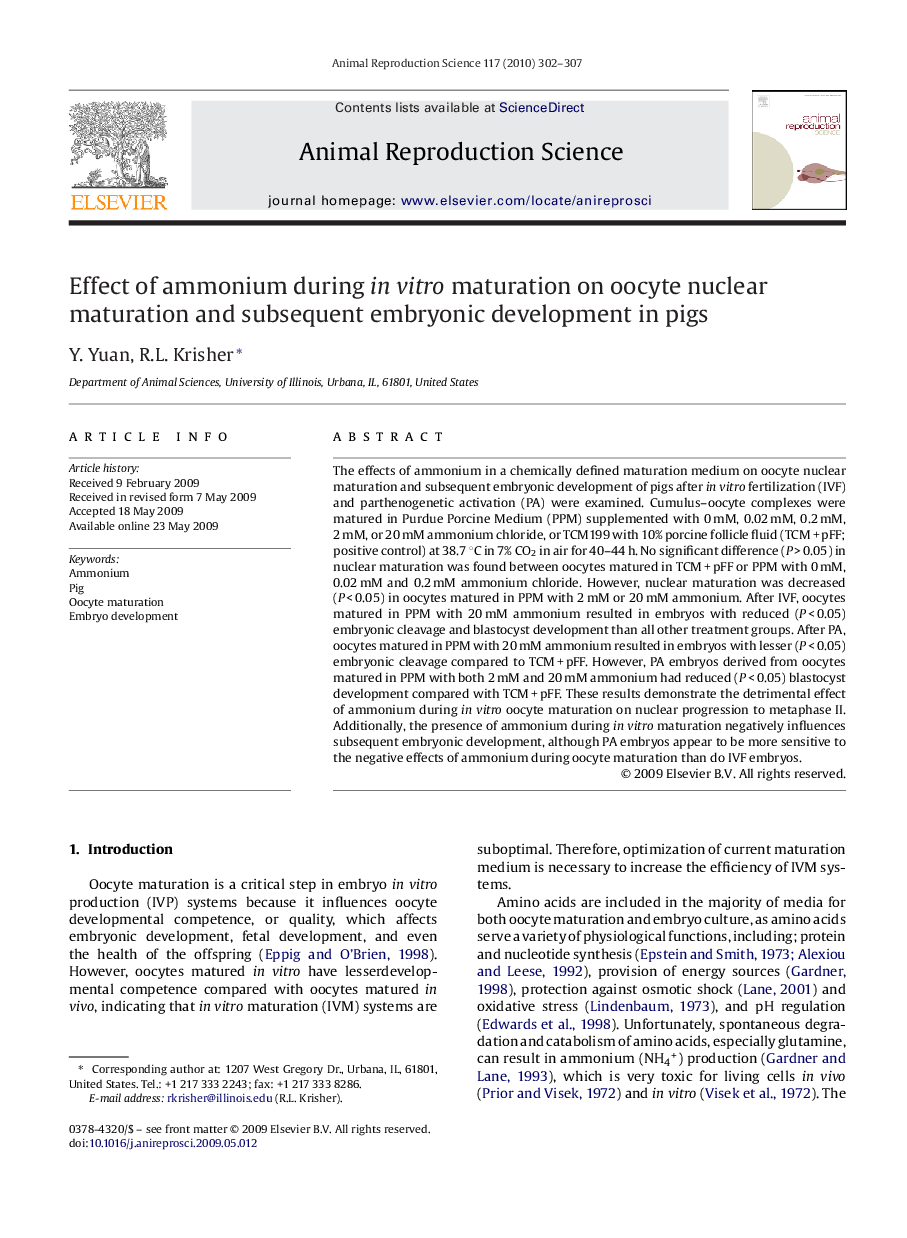| Article ID | Journal | Published Year | Pages | File Type |
|---|---|---|---|---|
| 2073905 | Animal Reproduction Science | 2010 | 6 Pages |
The effects of ammonium in a chemically defined maturation medium on oocyte nuclear maturation and subsequent embryonic development of pigs after in vitro fertilization (IVF) and parthenogenetic activation (PA) were examined. Cumulus–oocyte complexes were matured in Purdue Porcine Medium (PPM) supplemented with 0 mM, 0.02 mM, 0.2 mM, 2 mM, or 20 mM ammonium chloride, or TCM199 with 10% porcine follicle fluid (TCM + pFF; positive control) at 38.7 °C in 7% CO2 in air for 40–44 h. No significant difference (P > 0.05) in nuclear maturation was found between oocytes matured in TCM + pFF or PPM with 0 mM, 0.02 mM and 0.2 mM ammonium chloride. However, nuclear maturation was decreased (P < 0.05) in oocytes matured in PPM with 2 mM or 20 mM ammonium. After IVF, oocytes matured in PPM with 20 mM ammonium resulted in embryos with reduced (P < 0.05) embryonic cleavage and blastocyst development than all other treatment groups. After PA, oocytes matured in PPM with 20 mM ammonium resulted in embryos with lesser (P < 0.05) embryonic cleavage compared to TCM + pFF. However, PA embryos derived from oocytes matured in PPM with both 2 mM and 20 mM ammonium had reduced (P < 0.05) blastocyst development compared with TCM + pFF. These results demonstrate the detrimental effect of ammonium during in vitro oocyte maturation on nuclear progression to metaphase II. Additionally, the presence of ammonium during in vitro maturation negatively influences subsequent embryonic development, although PA embryos appear to be more sensitive to the negative effects of ammonium during oocyte maturation than do IVF embryos.
